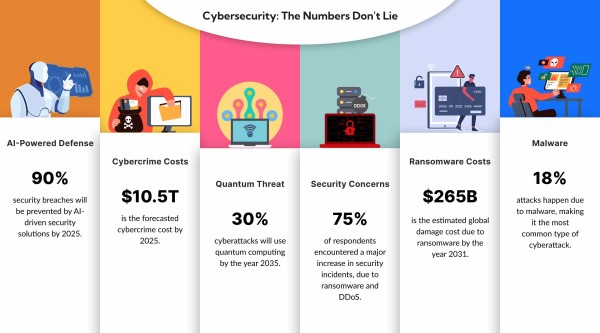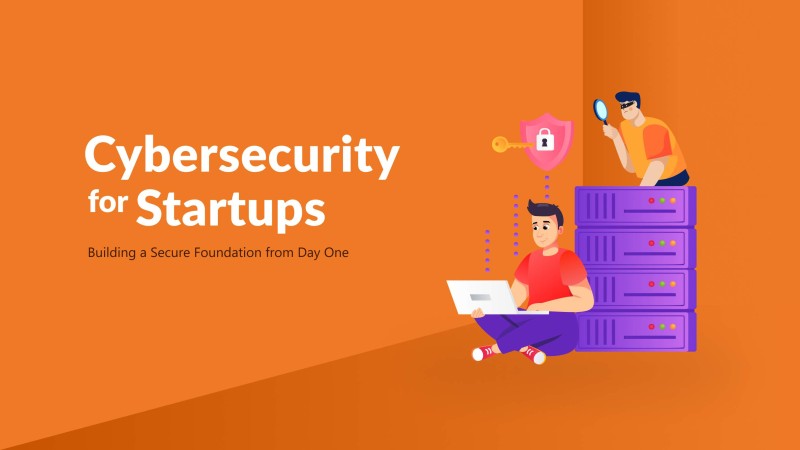Why cybersecurity for startups is essential? Imagine you build a startup on a fabulous idea. You worked hard for it, got a hefty investment, and made it an unicorn. One mistake you made was that you just didn’t focus on the cybersecurity of your startup. One day, you learned that a cybercriminal stole your data by launching a cyber attack on your startup’s database and leaked the confidential credentials of your users, resulting in the gradual end of your startup and making you bankrupt.
Terrifying right? Well, this is possible if your startup or company doesn’t have proper cybersecurity measures. Cybersecurity is essential for mitigating risks and providing reliable and adequate incident response for your startup. 51% of small businesses have no cybersecurity measures in the first place, making them heavily vulnerable to cyber threats like ransomware, malware, DDoS, and many more. Don’t let your startup get in one of these statistics, and ensure a secure foundation from day one.
In this article, learn the importance of cybersecurity for startups, the critical strategies for a secure startup, the best tools for investing in cybersecurity, and much more.
Importance of Cybersecurity for StartUps
In this digital age, technological advancements have increased the threats and possibility of severe cyber attacks. Due to startups' limited resources, rapid growth, and early stage of entrepreneurship, cybercriminals use social engineering, brute force cracking, phishing, etc., to disrupt startups' financial and technological foundations.
Complying with regulations plays a significant role in avoiding these cybersecurity scenarios. Adequate cybersecurity helps maintain the trust of stakeholders and customers while protecting invaluable data. Moreover, it is essential for securing businesses' financial infrastructure and establishing market sustainability.
60% of small businesses shut down after a cyber attack, highlighting the importance of cybersecurity for avoiding business disruptions, such as system failure, data loss, and downtime. In addition, cybersecurity assists data engineering services like data pipelines by securing data flow and access control.
Key Strategies for a Secure Startup
It is imperative for a startup to implement several key cybersecurity strategies to help it become secure and grow; these are as follows:
Business Cyber Risk Analysis:
Analyze your business’s vulnerabilities, threat level, and security posture and check for any cyber risks affecting your startup. By doing the risk assessment, you can get a clear idea of the resource allocation for weak elements of your cyber security. Alongside this, startups should conduct regular updates and audits to ensure regular security checks.
MFA:
Multi-factor authentication is an effective way to secure your IDs and other details. It can be achieved by biometric, text, or phone call verification. In startups, where the chances of fresh and varied users are high, the chances of a data breach are also high.
Ensure Cloud Storage Security:
Cloud computing technology involves cloud consulting services, software-as-a-service, etc., which helps meet ever-growing business needs. If your startup is also shifted to the cloud, like many other leading startups, consider ensuring cloud storage security, including limiting access to your cloud, which will add a protective layer to your data.
Awareness among Employees via Training Sessions:
Training sessions should be held to spread awareness regarding cybersecurity measures, such as using strong and complex passwords and encryption methods; this will embrace security in culture. Employees should know how to recognize and respond to cyber threats. These training sessions, when tracked and organized through employee management software, will result in fewer human errors (human errors are responsible for 90% of cyber attacks).
Protect and Monitor your Network:
Startup is all about innovation; while working in a startup, many new ideas are circulated via the network and system, exposing the risk of any external threat. One of the effective ways to secure your data is to monitor and protect your network, involving:
- Installing an antivirus software
- Adding an intrusion detection system
- Log management for recording network activities
Post-Attack Plan:
A post-attack plan is a must while strengthening cybersecurity. It involves understanding how the cyber attack happened, managing the patch, monitoring the network to ensure the threat has been eliminated, and making a plan that checks that this threat doesn't happen again. A post-incident review should determine all the processes and people affected by the attack to ensure that it does not occur again.
Investing in Cybersecurity Tools and Services

Many early-stage startups don’t feel cybersecurity is pivotal and often neglect it in favor of expansion. However, learning to invest in suitable security measures from the onset is immensely beneficial since it can prevent future concerns.
Consider implementing these essential tools and services:
Antivirus and Anti-malware Software: Antivirus provides features like real-time protection, dynamic scanning, vulnerability detection, etc., which helps secure the upper layer of security. E.g., are, Bitdefender, Malwarebytes, Norton360
Firewalls: These devices confine one network from another, so a connection exists, but the two cannot intermingle. E.g., are Cisco ASA, Fortigate.
Virtual Private Networks (VPNs): Assure secure access to the remote offices or provide your team. E.g., are NordVPN Teams, Express VPN.
Password Managers: Promote good password habits, such as using distinct passwords at workplaces. E.g., are LastPass and Dashlane.
Encryption Tools: These tools encrypt sensitive data so that if it gets lost, it won’t be understood because of solid encryption. E.g., are VeraCrypt and AxCrypt.
These tools can significantly enhance the organization's overall security posture and enable quick responses to potential threats.
The Role of Cybersecurity in Customer Trust and Business Growth
Suppose a startup gets cyber-attacked and collapses every year. Will it have a good brand reputation? Will its existing customers trust it, and will new customers come? Of course, NO.
Any cyber attack on a business decreases customer trust. Incompetence in cybersecurity makes customers think the organization cannot safeguard their data, reducing customer engagement and business growth.
Robust cybersecurity measures like adopting TQM principles in data privacy initiatives enhance customer trust, leading to more customers and increasing business revenue and growth.
In some industries, customer trust is the top priority for business continuity and sustainability, such as the financial services and banking sectors. Also, investors only invest in trustworthy and credible startups, which can be achieved through adequate cybersecurity measures and top security prioritization. Startups with effective measures eventually gain stakeholders' and customers' trust, leading to business growth.
Conclusion
The future holds the developing need to enhance cybersecurity technology and methods. With digital transformations, cybercriminals will find new loopholes and innovative approaches to disrupt emerging businesses.
Enhance your startup’s cybersecurity with the abovementioned key strategies and safeguard your business, facilitating customer trust and growth. Building a startup is a constant and challenging task, which makes it formidable and strenuous.
Your years of hard work can go to zero if a significant cyber attack occurs. So, apply and implement measures and understand the importance of cybersecurity for startups. Elevate your startup's security infrastructure with cybersecurity tools and services that match your business’s objectives and mission.
Author Bio:
Anirudh is a content writer specializing in technical concepts related to the digital economy and finance, such as AI, SEO, cloud computing, and more. A curious learner who has been writing on Medium, LinkedIn, and other reputable writing platforms, aims for excellence and endeavors for personal and professional growth.
